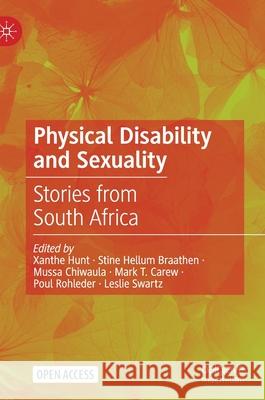Physical Disability and Sexuality: Stories from South Africa » książka
topmenu
Physical Disability and Sexuality: Stories from South Africa
ISBN-13: 9783030555665 / Angielski / Twarda / 2021 / 154 str.
Kategorie BISAC:
Wydawca:
Palgrave MacMillan
Język:
Angielski
ISBN-13:
9783030555665
Rok wydania:
2021
Wydanie:
2021
Ilość stron:
154
Waga:
0.37 kg
Wymiary:
21.01 x 14.81 x 1.27
Oprawa:
Twarda
Wolumenów:
01
Dodatkowe informacje:
Wydanie ilustrowane











